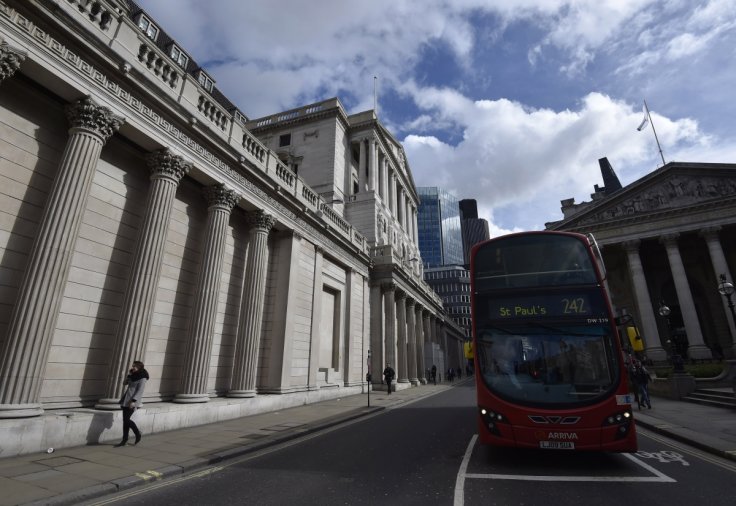A rogue supplier has been misusing audio feeds from Bank of England (BoE) news conferences this year, the central bank said, giving traders access to potentially market-moving information seconds before rivals.
In response to a report in The Times newspaper, . Briefings by BoE Governor Mark Carney and other central bank officials often move the prices of financial assets such as currencies and government bonds, and early access to their comments could allow traders to make millions.
The supplier sent the feed to high-speed traders who could have had a five to eight second head start because sound can be compressed and transmitted faster than video, The Times said. "We have recently identified that an audio feed of certain of the Bank press conferences ... has been misused by a third-party supplier to the Bank since earlier this year to supply services to other external clients," the BoE said.
"This wholly unacceptable use of the audio feed was without the Bank's knowledge or consent, and is being investigated further," it said in a statement, without naming the supplier. Hedge funds have long sought to steal a march on rivals by getting market-moving data first, and the pressure to do so has grown in recent years as many funds have struggled to outperform market indexes, reducing the fees they can charge.

Funds now scour the market for sets of "alternative data" that can give them an edge, which in turn has spawned an industry of data suppliers and service providers who charge thousands of pounds for their products and subscriptions.
Sensitive information can be fed into complex computer programs capable of executing large volumes of financial trades in nanoseconds, making a head start of even five seconds an age for sophisticated investors.
'ALMOST REAL TIME'
A number of suppliers also offer high-speed audio feeds for news conferences by the European Central Bank (ECB), the U.S. Federal Reserve and the Bank of Canada. Some have tried to level the playing field for all market watchers.
In September, the ECB added a public audio feed for its news conferences on its website, in addition to its usual video webcast. The central bank said this was to allow all to follow the briefing in "almost real time". The ECB had become concerned that unaffiliated vendors were selling an unauthorized audio feed of its news conferences to market participants, though it was not clear how the suppliers gained access to the sound.
There is a lag of about 30 seconds between the ECB's new low-latency audio feed and its video webcast. The Bank of England's audio feed was intended as a fallback option if its official video feed of its news conferences failed, according to The Times.
A BoE spokesman said it had referred the misuse of the feed to the Financial Conduct Authority (FCA). BoE governor Carney is due to leave within weeks and his replacement is expected to be announced soon following last week's parliamentary election. In its latest policy announcement, the central bank left interest rates unchanged on Thursday.
The bank said it had blocked the supplier's access once The Times had informed it of the misuse. The bank said the supplier had not distributed feeds from its most recent news conference and will not be involved in any conferences in the future. The FCA, which is responsible for regulating markets and traders in Britain, said it was looking into the matter.
Rohan Massey, a partner at law firm Ropes & Gray, told Reuters there could be widespread legal culpability, stretching from traders who misused the feed right up to the Bank of England, depending on the full facts of the case.
"You would have thought that as part of Bank of England standard operations, these agreements would provide adequate protections against unauthorized use of the data," he said.









